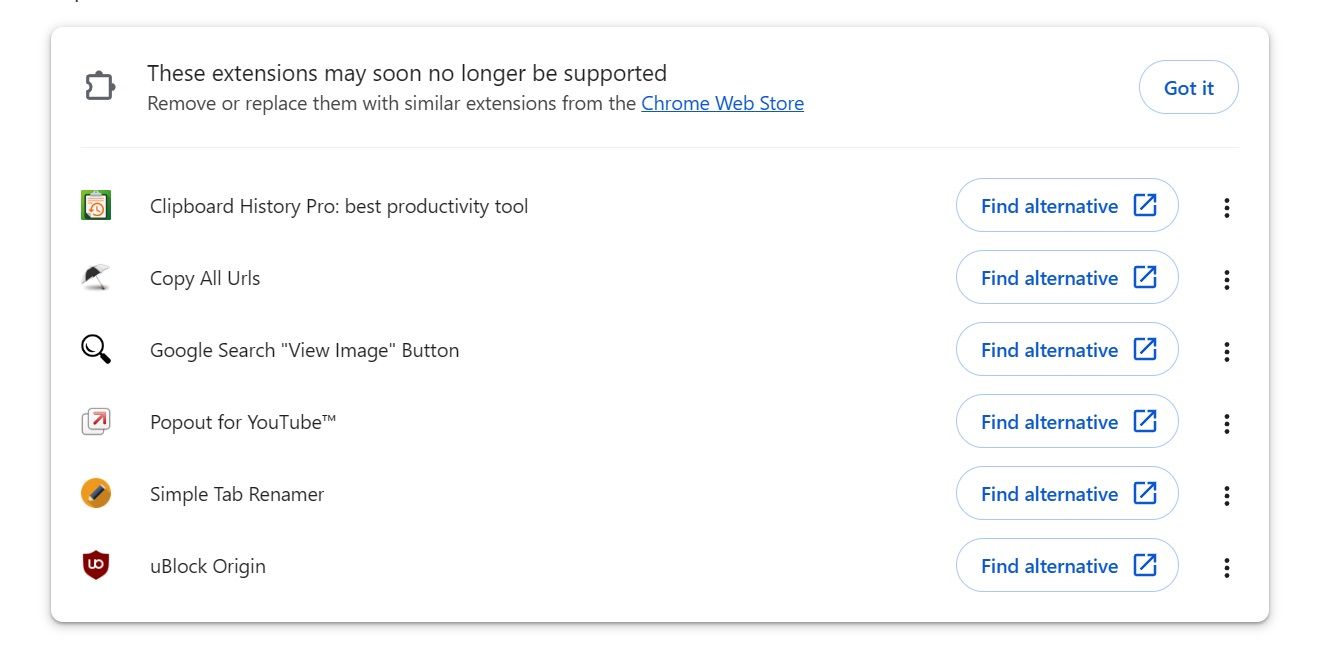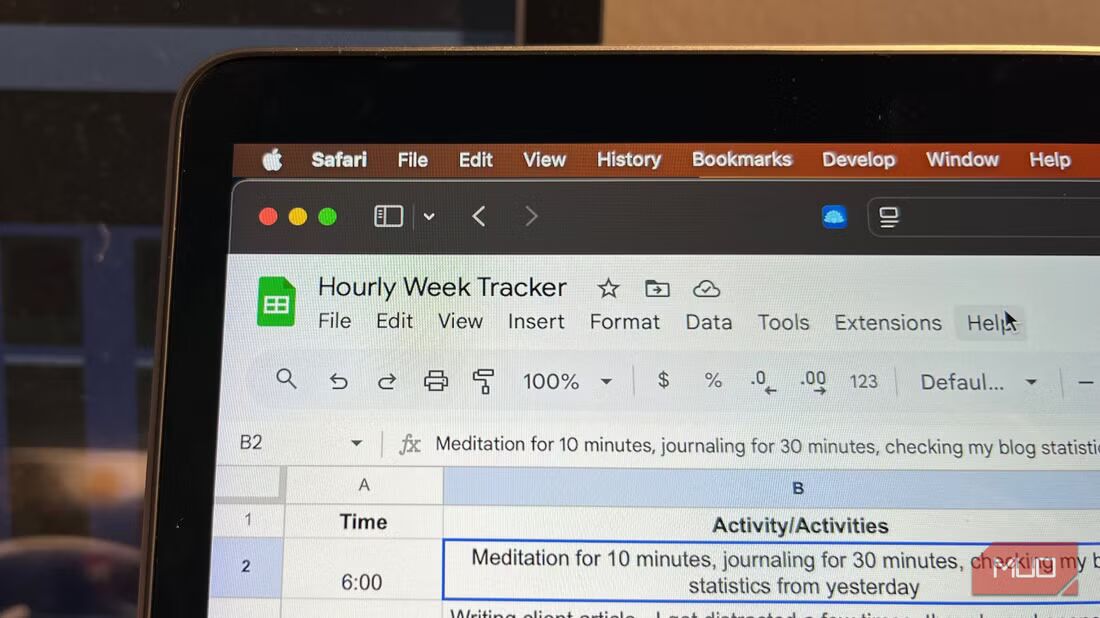Google Chrome is rolling out its long-awaited Manifest V3 update and removing several of your favorite browser extensions with it.
The writing’s on the wall: It’s time to leave Google Chrome.
Why Google Chrome Is Removing Browser Extensions
Google is officially moving to Manifest V3, its updated Chrome extension specification. Manifest V2 extensions used an API feature called Web Request to monitor traffic, allowing them to block certain web requests. This functionality is central to how certain browser extensions operate, like ad blockers.
Now, Manifest V3 alters the Web Request API, moving that functionality to a new API called Declarative Net Request. It also restricts some of the old API’s previous functionality, which means browser extensions can no longer function as before.
According to Google, Manifest V3 will help to bolster the “security, privacy, performance and trustworthiness of the extension ecosystem as a whole.” But what that means in practical terms is that the leading ad-blocking extension, uBlock Origin, among others, will stop working on Google Chrome.
Check Which Chrome Extensions Are Being Removed From Chrome
uBlock Origin is the largest affected app—and one of the reasons many folks are jumping ship from Google Chrome. But there are numerous other apps set for removal.
To check the list, head to chrome://extensions in your address bar, then scroll down—you’ll see which of your installed Chrome extensions are set for removal.
It’s Time to Leave Google Chrome Behind
The Manifest V3 update has been on the cards since early 2024, with Google first announcing it on its Chromium Blog. Many folks have already jumped ship to other browsers, like Mozilla Firefox—which still supports the Web Request API and the associated apps.
Interestingly, a Google spokesperson told The Verge that some 93 percent of Chrome extensions are already Manifest V3-compliant. In addition, there is a Manifest V3-compliant version of uBlock Origin—that’s uBlock Origin Lite—but it isn’t as powerful as the original.
In addition, some Chromium-based browsers have said they’ll continue to support V2 Manifest apps for as long as possible. For example, Brave Browser CEO Brendan Eich previously tweeted about support, but that was back in 2022.
Whether Brave and other Chromium-based browsers manage to keep Manifest V2 extensions up and running remains to be seen.




